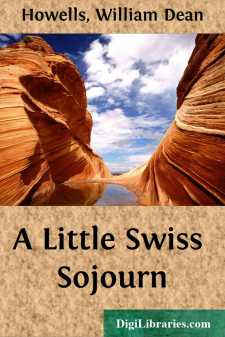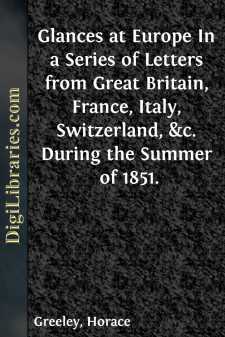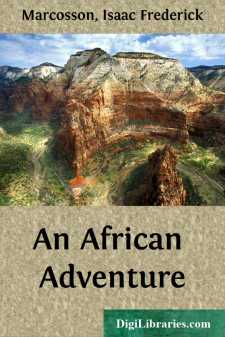Travel
- Africa 29
- Alaska 3
- Asia 46
- Australia & Oceania 26
- Canada 31
- Caribbean & West Indies 5
- Central America 1
- Europe 151
- General 39
- Maps & Road Atlases 1
- Mexico 10
- Middle East 18
- Polar Regions 7
- Reference 11
- Restaurants 1
- Russia 6
- South America 16
- United States 71
Travel Books
Sort by:
by:
Walter Bigges
INTRODUCTION Nearly five years elapsed between Drake's return from his Famous Voyage and the despatch of the formidable armament commemorated in the following pages. During the last of these years the march of events had been remarkably rapid. Gilbert, who had been empowered by Elizabeth, in the year of Frobisher's last expedition, to found colonies in America, had sailed for that purpose to...
more...
I Out of eighty or ninety days that we passed in Switzerland there must have been at least ten that were fair, not counting the forenoons before it began to rain, and the afternoons when it cleared up. They said that it was an unusually rainy autumn, and we could well believe it; yet I suspect that it rains a good deal in that little corner of the Canton Vaud even when the autumn is only usually rainy....
more...
by:
Robert Kerr
CHAPTER XI. EARLY ENGLISH VOYAGES OF DISCOVERY TO AMERICA. INTRODUCTION. Although we have already, in the Introduction to the Second Chapter of this Book, Vol. III. p. 346. given some notices of the voyages of John and Sebastian Cabot to America in the service of Henry VII. and VIII. it appears proper on the present occasion to insert a full report of every thing that is now known of these early...
more...
by:
E. W. Haslehust
PLYMOUTH TO LAND'S END"By Tre, Pol, and Pen,You may know the Cornishmen."The majority of our English counties possess some special feature, some particular attraction which acts as a lodestone for tourists, in the form of a stately cathedral, striking physical beauty, or a wealth of historical or literary associations. There are large districts of rural England that would have remained...
more...
by:
Matthew Flinders
CHAPTER I. Departure from Port Jackson, with the Lady Nelson.Examination of various parts of the East Coast, from thence to Sandy Cape.Break-sea Spit.Anchorage in Hervey's Bay, where the Lady Nelson joins after a separation.Some account of the inhabitants.Variations of the compass.Run to Bustard Bay.Port Curtis discovered, and examined.Some account of the surrounding country.Arrival in Keppel Bay,...
more...
by:
Susannah Watts
A WALKthrough LEICESTER. To the traveller who may wish to visit whatever is deemed most worthy of notice in the town of Leicester, the following sketch is devoted. And as the highly cultivated state of topographical knowledge renders superficial remark unpardonable in local description, we shall endeavor to produce, at the various objects of our visit, such information and reflections as a conductor,...
more...
by:
Horace Greeley
NO APOLOGY. If there be any reader impelled to dip into notes of foreign travel mainly by a solicitude to perfect his knowledge of the manners and habits of good society, to which end he is anxious to learn how my Lord Shuffleton waltzes, what wine Baron Hob-and-nob patronizes, which tints predominate in Lady Highflyer's dress, and what is the probable color of the Duchess of Doublehose's...
more...
Turn the searchlight on the political and economic chaos that has followed the Great War and you find a surprising lack of real leadership. Out of the mists that enshroud the world welter only three commanding personalities emerge. In England Lloyd George survives amid the storm of party clash and Irish discord. Down in Greece Venizelos, despite defeat, remains an impressive figure of high ideals and...
more...
PREFACE. As I have a sort of religion in literature, believing that no author can justly intrude upon the public without feeling that his writings may be of some benefit to mankind, I beg leave to apologize for this little book. I know, no critic can tell me better than I know myself, how much it falls short of what might have been done by an abler pen. Yet it is something—an index, I should say, to...
more...
INTRODUCTION A TRAVELER'S REFLECTIONS ON VERSAILLES From the low heights of Satory we get a complete view of the plains of Versailles--the woods, the town and the sumptuous chateau. The palace on its dais rules the scene. The village and ornamental environment have been constructed to augment its majesty. Even the soil has been "molded into new forms" at a monarch's caprice....
more...











